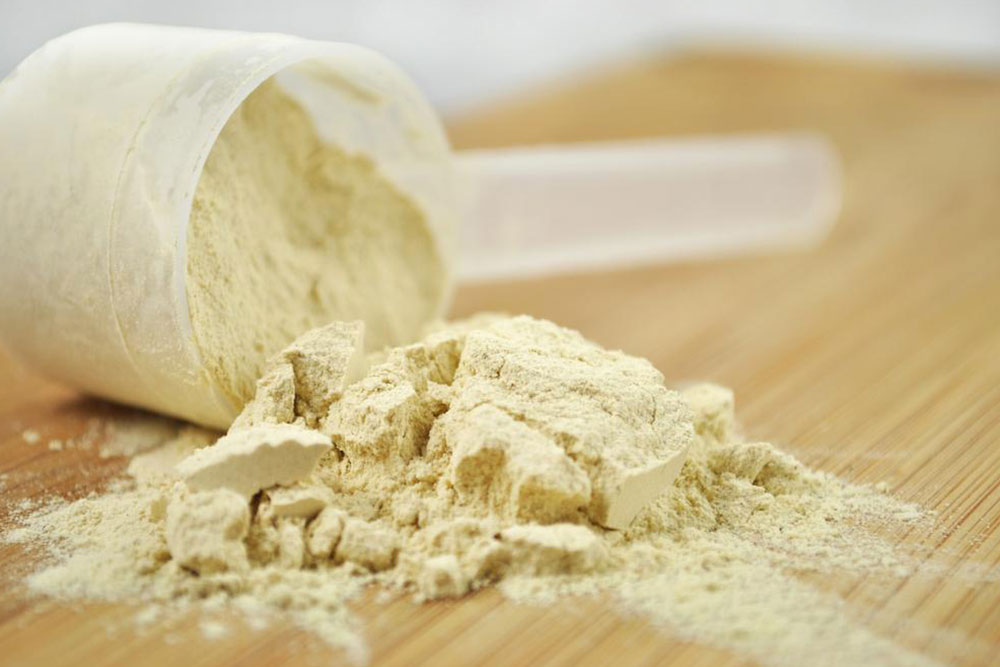Comprehensive Guide to Selecting the Perfect Protein Supplements for Your Health Goals
This comprehensive guide explores how to choose the right protein supplements tailored to individual health goals and dietary needs. Covering types, benefits, optimal timing, intake recommendations, and safety considerations, this article helps readers make informed decisions. It emphasizes the importance of personalized selection based on lifestyle, restrictions, and fitness ambitions, ensuring maximum benefits while mitigating risks associated with excessive consumption. An essential resource for athletes, vegetarians, or anyone seeking to enhance their nutrition through supplements.

Comprehensive Guide to Selecting the Perfect Protein Supplements for Your Health Goals
In recent years, protein supplements have become a staple in the diets of a diverse range of individuals. While initially popular among athletes and bodybuilders, their benefits have extended far beyond the gym, reaching those seeking weight management, muscle toning, recovery from illness, or adhering to vegetarian and vegan lifestyles. With a variety of options sourced from animal and plant ingredients, these supplements are formulated as concentrates, isolates, or hydrolysates, often enhanced with added vitamins, minerals, and flavorings. Consumers can purchase these products easily at pharmacies, specialty health stores, supermarkets, or through online platforms. They come in multiple forms such as powders, ready-to-drink shakes, or even bars, providing flexible options to fit any lifestyle. Their versatility allows users to incorporate protein into meals, smoothies, or snacks seamlessly.
Understanding Different Types of Protein Supplements
Protein supplements are diverse, with each type offering unique benefits. The most common varieties include whey, casein, soy, pea, hemp, and rice protein. Whey protein, derived from milk during cheese production, is highly popular due to its rapid absorption, complete amino acid profile, and effectiveness in promoting muscle repair and growth. This makes it especially desirable for athletes or fitness enthusiasts engaged in intense training routines. Casein, another dairy-based protein, is digested more slowly, providing a steady release of amino acids over several hours, which is ideal for nighttime recovery or weight management. Plant-based options such as soy, pea, hemp, and rice proteins cater to vegans, vegetarians, or individuals with lactose intolerance or allergens, offering equally effective alternatives suited for different dietary restrictions and preferences.
Health Benefits of Protein Supplements
Proteins are fundamental macronutrients essential for maintaining overall health. They play a vital role in energizing the body, repairing damaged tissues, building and maintaining muscle mass, and supporting metabolic functions. Choosing the right supplement can help reduce body fat, improve satiety—leading to better appetite control—and assist in recovery from physical exertion or illness. Adequate protein intake is associated with enhanced immune function, better skin, hair, and nail health, and improved bone density. In addition, protein supplements can be tailored to support specific goals such as muscle hypertrophy, weight loss, or general wellness, making them a versatile addition to various dietary plans.
Optimal Timing and Usage of Protein Supplements
Knowing when to incorporate protein supplements into daily routines can significantly impact their effectiveness. For athletes and individuals engaging in intense physical activity, consuming protein shortly after workouts can support muscle repair and growth. Teenagers involved in sports may also benefit from supplemental protein as part of their balanced diet. Those in recovery from injury or illness may find increased protein intake essential for tissue regeneration. People following vegan or vegetarian diets often use supplements to ensure they meet their daily protein requirements. Additionally, some prefer taking protein supplements before bed, especially casein, for overnight muscle repair. The key is to align supplement intake with activity levels and personal health goals.
Determining the Right Daily Protein Intake
Nutrition guidelines suggest varied protein needs based on age, activity level, and health status. According to the American College of Sports Medicine, the average adult should consume approximately 0.8 grams of protein per kilogram of body weight daily. However, athletes and those with higher physical demands typically require more, ranging from 1.1 to 2.0 grams per kilogram. For example, a person weighing 70 kg may need around 56 grams of protein daily, but active individuals might require upwards of 140 grams. It's usually preferable to obtain most protein from balanced diets comprising lean meats, dairy, legumes, grains, and nuts. Supplements serve as an effective way to fill gaps or boost intake during increased activity or recovery periods.
Risks of Excessive Protein Consumption
While protein is crucial for health, overconsumption can pose risks. Excessive intake may put unnecessary stress on fragile organs such as the liver and kidneys, especially in individuals with pre-existing conditions. Additionally, high protein diets can sometimes lead to dehydration, nutrient imbalance, or gastrointestinal discomfort. The FDA does not regulate dietary supplements with the same strictness as medications, making it essential for consumers to exercise caution. Consulting healthcare professionals or registered dietitians before adding large amounts of protein supplements to daily routines ensures safe and effective use that aligns with personal health needs.
Choosing the Most Suitable Protein Powder
Picking the right protein supplement involves evaluating personal factors such as age, activity level, dietary restrictions, taste preferences, and financial considerations. Here’s a breakdown of popular options:
Whey Protein: Derived from milk, it is known for its rapid absorption and ability to stimulate muscle synthesis. It’s particularly effective post-exercise. Lactose-intolerant individuals should opt for lactose-free or hydrolyzed varieties like Legion Whey+.
Casein Protein: A slow-digesting dairy protein that provides a sustained release of amino acids. It’s beneficial for overnight muscle recovery or weight management. Reliable brands include Optimum Nutrition and Dymatize.
Pea Protein: Made from yellow peas, this plant-based protein is rich in essential amino acids, supports fullness, and aids in muscle development. It’s free from allergens and has a neutral flavor, making it versatile for various recipes.
Hemp Protein: Sourced from hemp seeds, this vegan option contains omega-3 fatty acids, fiber, and easy digestibility. It supports tissue repair and overall wellness. Popular brands include Bob’s Red Mill and Nutiva.
Brown Rice Protein: Derived from whole grain brown rice, this lightly processed vegan protein is excellent for weight loss and maintenance, gluten-free, and rich in antioxidants. Examples include Naked Rice and NutriBiotic.
Mixed Plant Proteins: Blended formulations of rice, pea, hemp, and quinoa provide comprehensive amino acid profiles, ideal for vegans and those seeking balanced nutrition. Brands like PlantFusion and Orgain offer high-quality options.
Choosing the appropriate protein supplement should factor in personal health conditions, taste preferences, and budget considerations. It’s advisable to consult with healthcare professionals to determine the best fit and prevent adverse effects, maximizing benefits for weight management, muscle health, and overall wellness.





